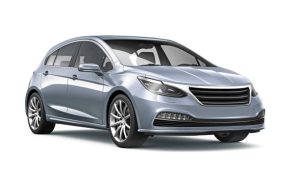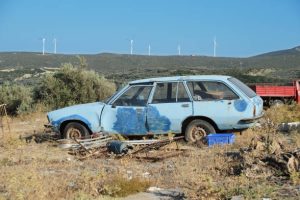
The Indian Government is pushing electric vehicles to become the main driver within the automotive industry. Starting from the likes of Mahindra as well as Hero to the world’s largest auto companies, they are all transforming their fleet to electric; however, the French auto giant Renault is refusing to give up to pressure. They have stated that they will not be bringing electric vehicles to India until 2022.
Renault’s Worry
Renault’s India Operations Director and CEO, Venkatram Mamillapalle, told reporters in Delhi that India isn’t yet fully equipped to support the market for EVs, and that’s the reason why they are launching the vehicles today as well as “having the cars in the garages makes no sense.” He clarified that those who make false statements about the launch of the first EV for India in the near future aren’t a good idea.
“We are venturing into EV space. You will definitely see something coming up by 2022, but before I say that we want to enter into the EV segment, the most important thing is the ecosystem,” He said, insisting that the government should quickly work to create an efficient ecosystem for electric vehicles prior to requiring auto manufacturers to start their operations in the country.
Infrastructure Solution
The recent decline in auto sales that impacted nearly 3.5 million jobs in the sector could be explained by the increasing confusion among Indian buyers about purchasing Internal Combustion Engine (ICE) vehicles or Electric Vehicles. It is a good thing that homegrown companies and Public Sector Units (PSUs) have taken on themselves the responsibility of improving the EV infrastructure of the nation.
The state-owned fossil fuel company, Indian Oil Corporation Ltd (IOCL), is already putting electrical automobile (EV) chargers in its stations for fuel. Currently, plans to establish one Giga Watt (GW) manufacturing facility that will manufacture batteries for electric motors (EVs) in conjunction with an international start-up company making use of a non-lithium Ion raw material readily available locally.
Market Support
Another government-owned organization, Energy Efficiency Services Limited (EESL), was given the task of purchasing 10,000 electric vehicles for use by the government. It has been revealed that it was able to procure and deploy just 1,500 cars, mostly due to the absence of charge stations. The company is now planning to tackle the issue by establishing more than 1,000 charging stations, after which it can deploy approximately 5,000 vehicles for different agencies of the government in the next.
Based on a study from Network18 Network18, Tata Power is planning to establish 500 EV charging stations in India in 2020. As of now, the company has 85 charging stations spread across 15 cities spread across nine states. In the world, transportation is shifting towards more sustainable alternatives. India is still struggling to get the wave of change. In the last fiscal year (FY18), of the 25 million brand-new vehicles that rolled onto Indian roads, just 0.3 percent were electric vehicles (around 5,666).
EV – A Challenge & an Opportunity
There’s been some agitation within the customer base in regard to Electric Vehicles. At an event held by MCCIA on “Emerging technologies in electric mobility,” Rashmi Urdhwareshe, who is the Director of the Automotive Research Association of India (ARAI), said that one should be aware of the consumer’s ability to perform and reliability needs to be guaranteed in electric vehicles.
If all of these (factors) which include cost, have been considered as a factor, there are plenty of opportunities within this industry, she added. Suppose the recent comments made by NITI Aayog’s CEO, Amitabh Kant, are anything to be believed. In that case, the cost of electric vehicles will reach the same level as combustion engine vehicles in the next three to four years, mostly due to a decrease in the price of batteries, and India must be prepared for this transformation.







